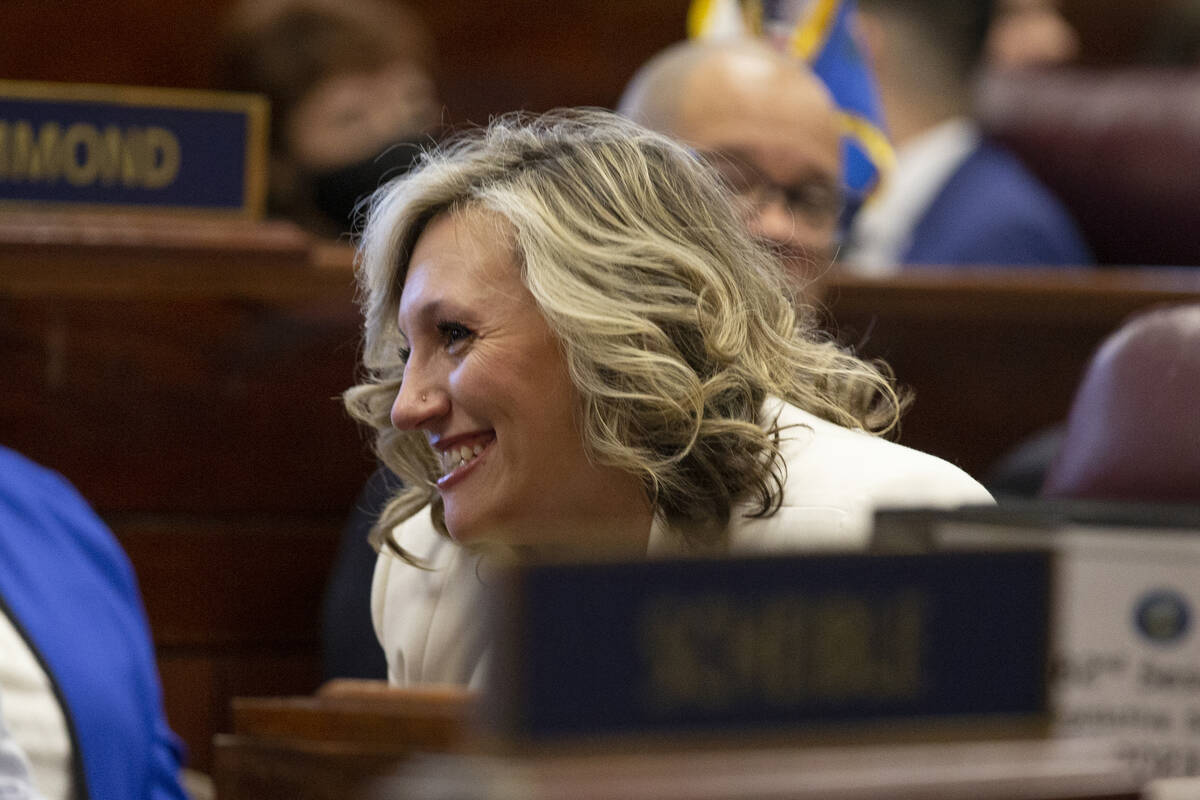Legislators question CCSD on close-call with budget
State Senate Majority Leader Nicole Cannizzaro grilled Clark County School District leaders Monday over their potential budget deficit and miscalculations that forced some schools to either cut programs, raise class sizes or use carry-forward funds.
In a nearly six-hour meeting of the Interim Finance Committee’s Subcommittee on Education Accountability, legislators heard CCSD administrators explain the shortfalls — and how they plan to make sure the mistakes don’t happen again.
Cannizzaro, D-Las Vegas, took the helm in seeking answers from staff about what happened.
“There are things that we know how to do right,” Cannizzaro said of Clark County School District, adding that she was a graduate from CCSD and owes the district for her education. “But we cannot do that if there are significant and egregious missteps with the handling of funding.”
The district, after receiving its largest allocation of funding in the last legislative session, announced in September that it was facing a potential budget deficit due to an underestimation of litigation and cybersecurity costs.
Gov. Joe Lombardo had called on the Nevada Legislature to expand an ongoing performance audit of CCSD to include the potential shortfall and examine how the district allocates funding to individual schools.
Last week, the Clark County School Board approved an amended final budget that will see the district end the year with no budget deficit — filling the funding gap with $9.9 million of its unassigned ending fund balance.
Kellie Kowal-Paul, chief strategy officer of CCSD, said the district was able to accommodate for some expenditures over revenues by using what she described as a small portion of the district’s ending fund balance in order to avoid a budget deficit.
“There is no budget crisis. There is no budget deficit in the Clark County School District,” Kowal-Paul said. “There was the potential for one at one point before the financials were completed for the end of the last fiscal year. That turned out to not be the case.”
What happened
CCSD administrators put part of the blame on $15 million in unanticipated expenses after a data breach last fall, leading the district to increase its investment in Fortinet, a cybersecurity firm. They also said the district had budgeted $10 million in expected litigation costs but ended up paying an additional $23 million. Those two things led to the deficit that was covered by ending-fund balance dollars.
Brenda Larsen-Mitchell, the interim superintendent of CCSD, said staff is digging into everything and has determined things they need to be doing better. CCSD is meeting with a compliance monitor assigned to them by the state, Yolanda King, for the first time on Wednesday, she said.
Larsen-Mitchell explained that, as the district prepared to roll out its fall budgets in September, administrators were in a meeting with members of the budget team where they learned they were using free-and-reduced lunch data to set extra funding for at-risk students rather than using GRAD scores, which assess students’ risk of dropping out, a smaller number of students.
They also underestimated the average cost of teachers for school budgets. The district estimated an 8-percent increase but did not account for step advancements, Larsen-Mitchell said.
Some schools had to make cuts to after-school programs, Larsen-Mitchell said. They may also have had to raise class sizes, though Larsen-Mitchell did not know how many schools had to do that. Schools also dipped into carry-forward funds — which are remaining funds at the end of a budget period — to cover expenses.
“Having schools receive a request to cut budgets well into the school year over errors that occurred the January prior is unacceptable,” Cannizzaro said.
She expressed concern that the mistakes were not caught until September, and that schools had to go through an appeal process to demonstrate they’d be significantly impacted once they learned they’d be receiving fewer funds than expected due to a “phenomenal accounting error,” Cannizzaro said.
Changes made
Kowal-Paul said the district has implemented a preview of the budget with principals to go over the upcoming budgets to make sure they are correct. There are also scheduled review requirements in the process now.
The district also found that it has been operating in “silos” and that proper systems and processes were not in place, Larsen-Mitchell said.
“We are all there to make sure that we are building systems and structures and not working in silos,” she said.
Minority Leader Sen. Robin Titus, R-Wellington, echoed her Democratic colleagues’ questioning.
“I appreciate both you, Speaker, and Majority Leader Cannizzaro for holding the folks that we’ve given this money to accountable and asking these detailed questions because I think it’s really important,” Titus said.
Contact Jessica Hill at jehill@reviewjournal.com. Follow @jess_hillyeah on X.






















